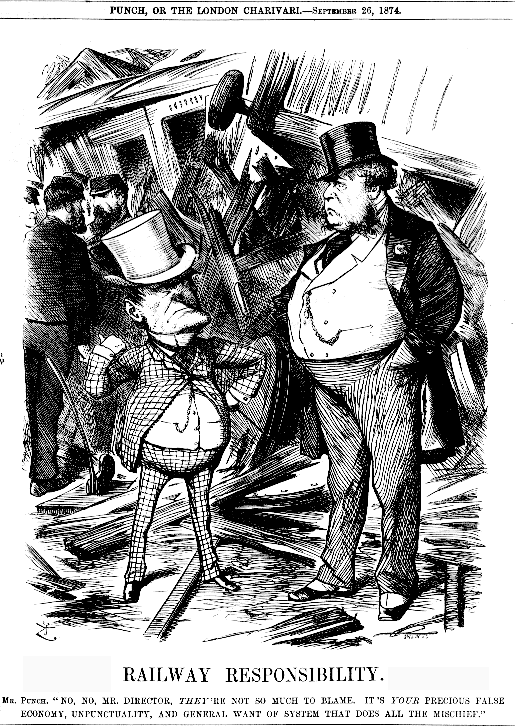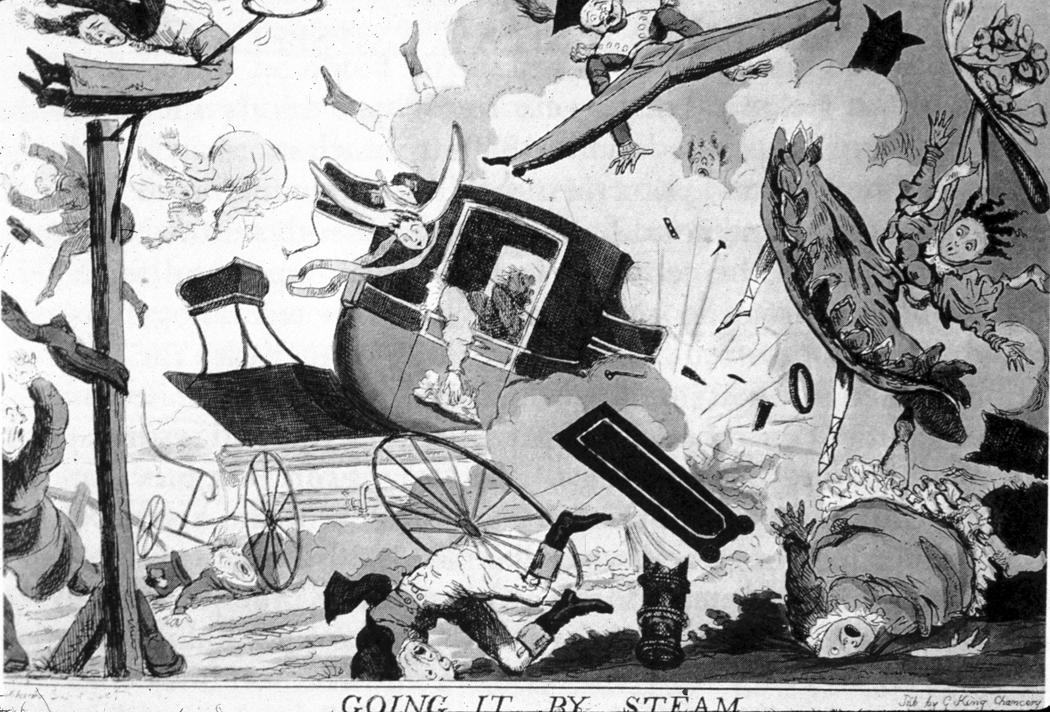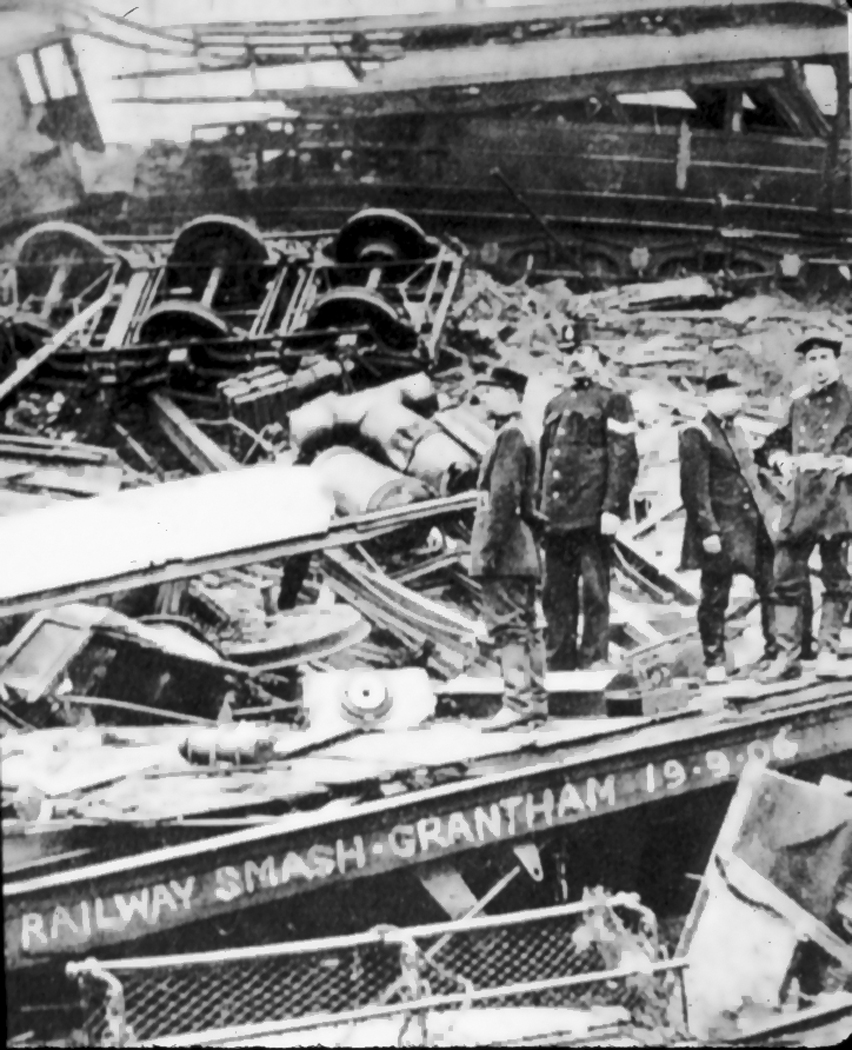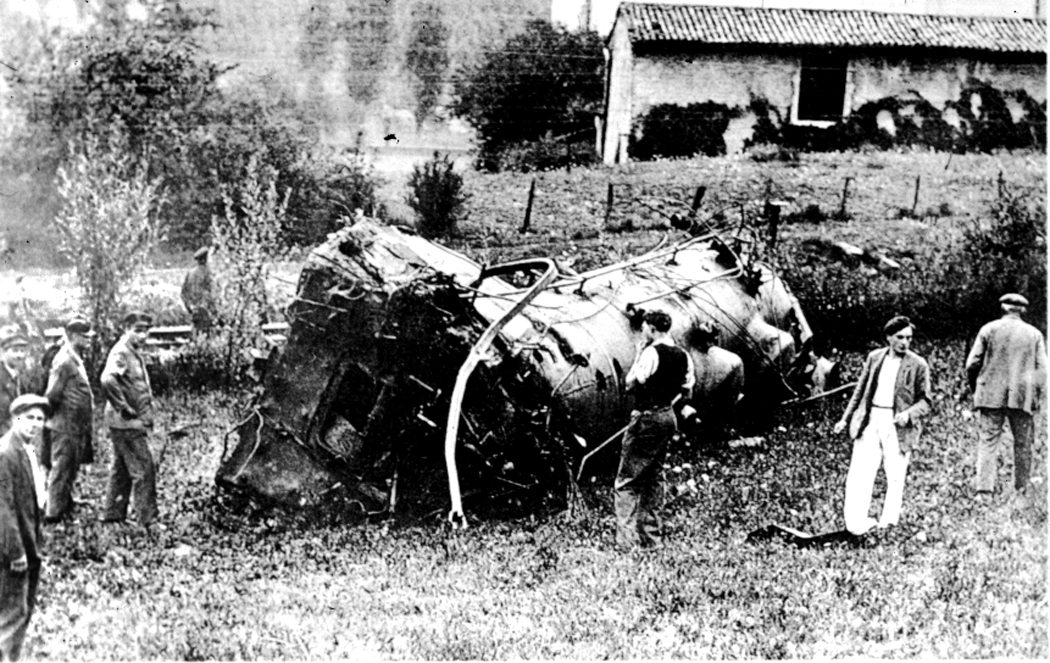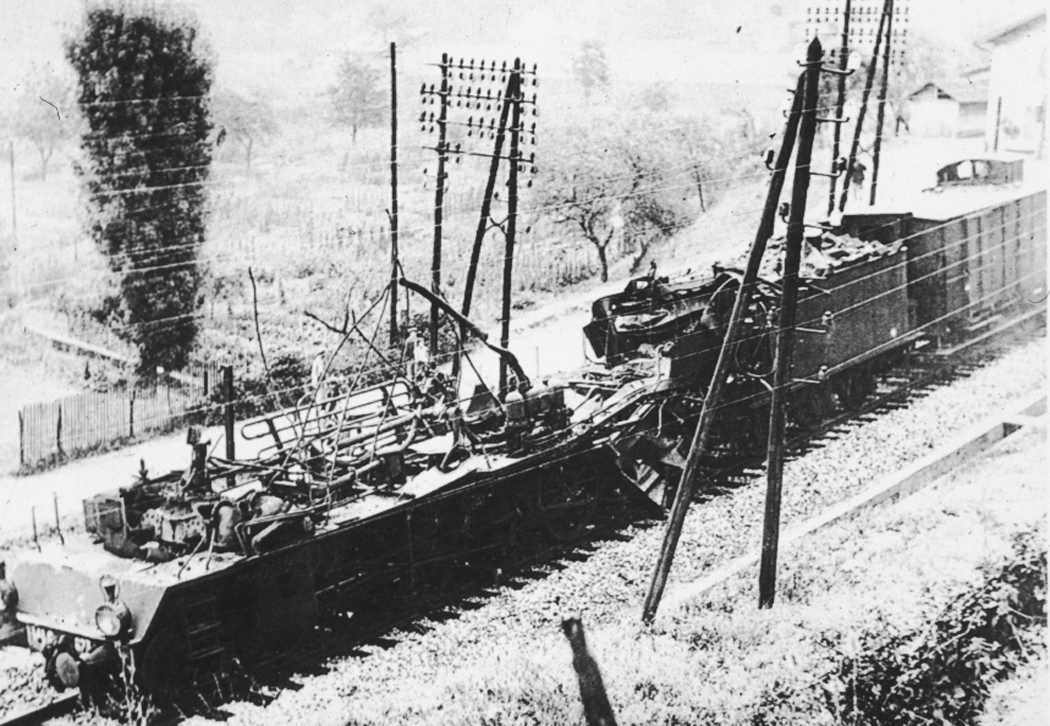I was in the only carriage which did
not go over into the stream. Our carriage was caught upon the turn of some
of the ruin of the bridge and hung suspended and balanced in an apparently
impossible manner. I got out with great caution and stood upon the step.
Looking down I saw the bridge had gone, and nothing below me but the line of
rail. Some people in the two other compartments were madly trying to plunge
out of the window, and had no idea that there was an open swampy field
fifteen feet below them and nothing else.
Suddenly I came upon a staggering man covered with blood
(I think he must have been flung clean out of his carriage), with such a
frightful cut across his skull that I couldn't bear to look at him. I poured
some water over his face and gave him some brandy, and laid him down on the
grass, and he said, "I am gone", and died afterwards.
I don't want to be examined at the inquest and I don't want to write about
it. I could do no good either way, and I could only seem to speak about it
to myself . . . . I am keeping very quiet here. I have a---I don't know what to call
it---constitutional (I suppose) presence of mind, and was not in the least
fluttered at the time. I instantly remembered that I had the MS of a number with
me and clambered back into the carriage for it. But in writing these scanty
words of recollection I feel the shake and I am obliged to stop.
Charles Dickens, June 1865 (emphasis added)
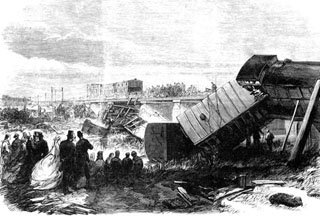 The accident at Staplehurst on the South Eastern Railway is remembered
chiefly for the survival of the train's most eminent passenger, Charles
Dickens. At the time of the derailment, he was reading the manuscript of
Our Mutual Friend while on his way back to London after a visit to France.
The accident should have been avoided, despite the absence of two sections
of rail, if various safety procedures had been carried out. A labourer
should have protected the line by placing a detonator every 250yd from the
viaduct for l,000yd at which point he should have placed two more 10 yd
apart and remained there with a red flag. The foreman, however, had placed
him only 554yd away, and since there were only two detonators to hand, the
foreman instructed that they were only to be used in the event of jog; it
was a sunny afternoon. The shortened distance made it impossible for the
driver to stop after he had seen the red flag, and the guard failed to
realise the urgency on hearing the brake whistle, applying only the screw
brake and not Cremar's patent brakes with which the leading van and two
coaches were fitted. Dickens was unhurt and went round the victims
administering what he thought was a helpful restorative - brandy.
Some of them died immediately, which puzzled Dickens, occasioning him to
note that 'Mr Dickenson was the first person the brandy saved'. There
is no doubt that Dickens' nervous system never recovered from the
accident. One of his companions on the protracted reading tours recorded
that Dickens would writhe with nervousness whenever an express gathered
speed. On the fifth anniversary of the accident, 9 June 1870, Dickens died
in his fifty-eighth year. Whatever else, a platelayer's error deprived
us of a solution to The Mystery of Edwin Drood. (my emphasis) The accident at Staplehurst on the South Eastern Railway is remembered
chiefly for the survival of the train's most eminent passenger, Charles
Dickens. At the time of the derailment, he was reading the manuscript of
Our Mutual Friend while on his way back to London after a visit to France.
The accident should have been avoided, despite the absence of two sections
of rail, if various safety procedures had been carried out. A labourer
should have protected the line by placing a detonator every 250yd from the
viaduct for l,000yd at which point he should have placed two more 10 yd
apart and remained there with a red flag. The foreman, however, had placed
him only 554yd away, and since there were only two detonators to hand, the
foreman instructed that they were only to be used in the event of jog; it
was a sunny afternoon. The shortened distance made it impossible for the
driver to stop after he had seen the red flag, and the guard failed to
realise the urgency on hearing the brake whistle, applying only the screw
brake and not Cremar's patent brakes with which the leading van and two
coaches were fitted. Dickens was unhurt and went round the victims
administering what he thought was a helpful restorative - brandy.
Some of them died immediately, which puzzled Dickens, occasioning him to
note that 'Mr Dickenson was the first person the brandy saved'. There
is no doubt that Dickens' nervous system never recovered from the
accident. One of his companions on the protracted reading tours recorded
that Dickens would writhe with nervousness whenever an express gathered
speed. On the fifth anniversary of the accident, 9 June 1870, Dickens died
in his fifty-eighth year. Whatever else, a platelayer's error deprived
us of a solution to The Mystery of Edwin Drood. (my emphasis)
The Illustrated London News, 17 June 1865 |
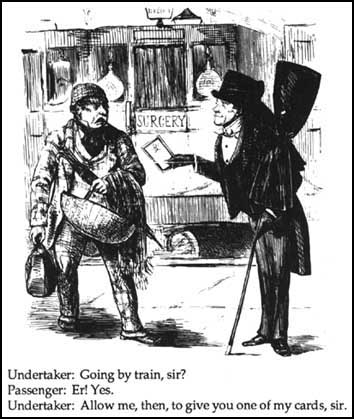
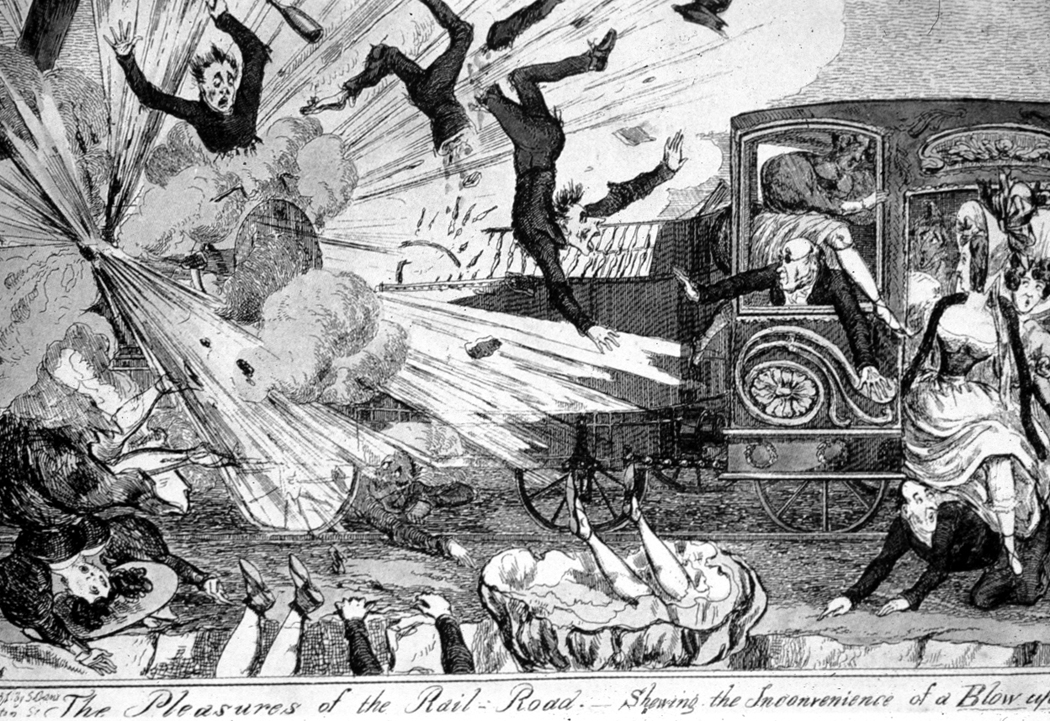
 The accident at Staplehurst on the South Eastern Railway is remembered
chiefly for the survival of the train's most eminent passenger, Charles
Dickens. At the time of the derailment, he was reading the manuscript of
Our Mutual Friend while on his way back to London after a visit to France.
The accident should have been avoided, despite the absence of two sections
of rail, if various safety procedures had been carried out. A labourer
should have protected the line by placing a detonator every 250yd from the
viaduct for l,000yd at which point he should have placed two more 10 yd
apart and remained there with a red flag. The foreman, however, had placed
him only 554yd away, and since there were only two detonators to hand, the
foreman instructed that they were only to be used in the event of jog; it
was a sunny afternoon. The shortened distance made it impossible for the
driver to stop after he had seen the red flag, and the guard failed to
realise the urgency on hearing the brake whistle, applying only the screw
brake and not Cremar's patent brakes with which the leading van and two
coaches were fitted. Dickens was unhurt and went round the victims
administering what he thought was a helpful restorative - brandy.
Some of them died immediately, which puzzled Dickens, occasioning him to
note that 'Mr Dickenson was the first person the brandy saved'. There
is no doubt that Dickens' nervous system never recovered from the
accident. One of his companions on the protracted reading tours recorded
that Dickens would writhe with nervousness whenever an express gathered
speed. On the fifth anniversary of the accident, 9 June 1870, Dickens died
in his fifty-eighth year. Whatever else, a platelayer's error deprived
us of a solution to The Mystery of Edwin Drood. (my emphasis)
The accident at Staplehurst on the South Eastern Railway is remembered
chiefly for the survival of the train's most eminent passenger, Charles
Dickens. At the time of the derailment, he was reading the manuscript of
Our Mutual Friend while on his way back to London after a visit to France.
The accident should have been avoided, despite the absence of two sections
of rail, if various safety procedures had been carried out. A labourer
should have protected the line by placing a detonator every 250yd from the
viaduct for l,000yd at which point he should have placed two more 10 yd
apart and remained there with a red flag. The foreman, however, had placed
him only 554yd away, and since there were only two detonators to hand, the
foreman instructed that they were only to be used in the event of jog; it
was a sunny afternoon. The shortened distance made it impossible for the
driver to stop after he had seen the red flag, and the guard failed to
realise the urgency on hearing the brake whistle, applying only the screw
brake and not Cremar's patent brakes with which the leading van and two
coaches were fitted. Dickens was unhurt and went round the victims
administering what he thought was a helpful restorative - brandy.
Some of them died immediately, which puzzled Dickens, occasioning him to
note that 'Mr Dickenson was the first person the brandy saved'. There
is no doubt that Dickens' nervous system never recovered from the
accident. One of his companions on the protracted reading tours recorded
that Dickens would writhe with nervousness whenever an express gathered
speed. On the fifth anniversary of the accident, 9 June 1870, Dickens died
in his fifty-eighth year. Whatever else, a platelayer's error deprived
us of a solution to The Mystery of Edwin Drood. (my emphasis)
